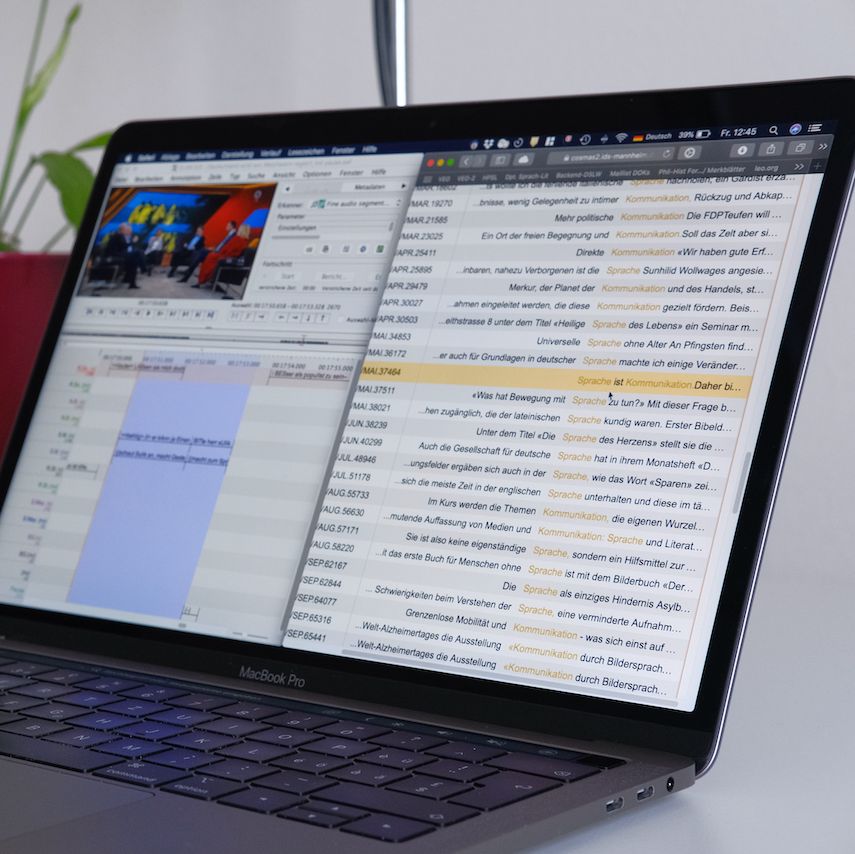The course of study consists of four modules:
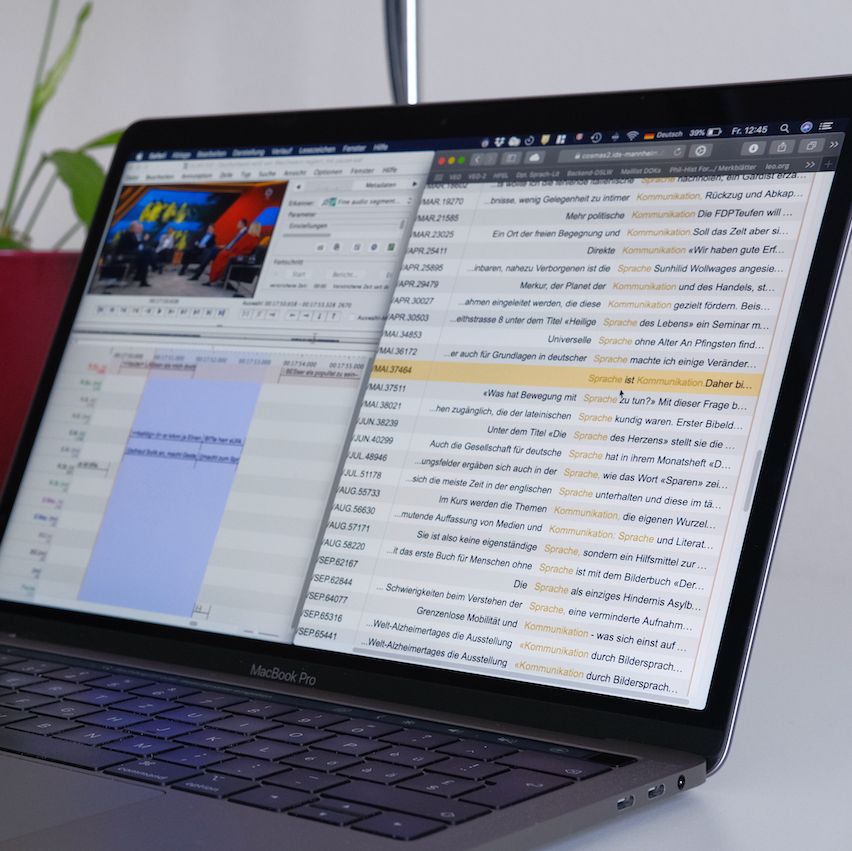
Modern linguistics both analyzes the multi-layered relationships within the system of a language and compares languages with each other. In Basel, we are mainly concerned with larger units (texts, discourses) and their structures. The following questions will be addressed in this module and extended in various sub-disciplines:
Language theory:
How can linguistic units (categories) and their relations be defined?
What factors (such as cognition, processing mechanisms, and conventionalization in language use) explain the stable and dynamic factors of language systems?
How can language systems be described at such levels as morphosyntax, semantics, pragmatics, interaction, and phonetics and phonology?
How does the interaction of levels of representation work (from sound to text/discourse)?
What principles govern individual language domains and textual or conversational varieties (genres)?
Dynamics and variation of language systems:
What systematic variations and processes of change can be observed in languages (variation/variety linguistics, dialectology, language change, lexicology)?
How do languages differ (typological and contrastive linguistics)?
Language and medium/context:
Writtenness, orality, CMC (computer-mediated communication), multimodal communication:
To what extent do mediality and genre influence the choice of linguistic structures? How does face-to-face communication differ from communication over temporal or spatial distances?
What is the contribution of body language and gestures?
What signals are used in digital media (as in the integration of text and image, for example)?
(Multi-)modality and interaction:
How does language interact with other means of expression (such as body language and gestures in oral communication or emojis, images, and hyperlinks in written communication)?
In this module, you will learn to explain and convey the complexity of the network of relationships between language systems (in such fields as teaching, language mediation, and communication).
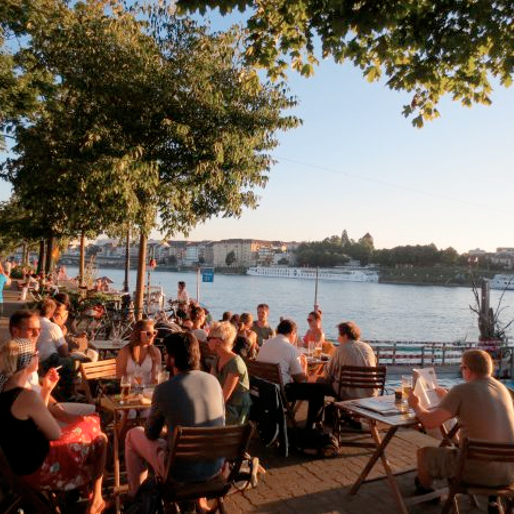
Social developments and trends not only find expression in language but might even be triggered by language. This applies to private and professional communication as well as to social discourses. This module thus considers the following questions:
- How do historical developments shape our language (language history) and what trends can be observed in contemporary language?
- How does language evolve through social change, cultural contact and migration (language contact; analytical linguistics of culture; multilingualism and migration linguistics)?
- How do geographical, social and stylistic varieties form and change (dialectology, linguistic identity)?
- What influence do language policies and language ideologies have on our view of languages?
- How do public and media discourses work (discourse analysis, political linguistics, glottopolitics)?
- What impact do media innovations and technology have on our language and our language behavior (media linguistics)?
- How do large sets of language data influence societal self-perception?
- What implications does such data have for communication in the future?
- How do we exercise power and do relational work linguistically (interpersonal pragmatics, politeness research, gender linguistics)?
- How do we integrate our gestures, facial expressions, postures and movements into communicative interaction, and what role do they play (Multimodal Conversation Analysis) in social encounters?
- What methods and criteria can be used to analyze and measure successful communication in professional and everyday life (institutional communication; research on mediation and counseling)?
- How does information transfer via texts work, and what criteria make the design of text forms successful (text linguistics; writing and writing-process research)?
- How can languages and knowledge of linguistic techniques and literacy be successfully taught?
- What role do parents, school, and society play in language learning (language-acquisition research)?
The linguistic methods you will learn in this module will enable you to use language as an approach to analyze processes of social change and social debates. You will learn to recognize various levels of linguistic identity construction and thus be able to better understand and classify such matters as multicultural and migration contexts (as in debates about integration). You will learn to investigate and interpret linguistic expressions in their concrete socio-cultural and political context (political linguistics, media linguistics, cultural linguistics). Finally, you will be able to classify the meaning and function of legal, administrative and scientific language.
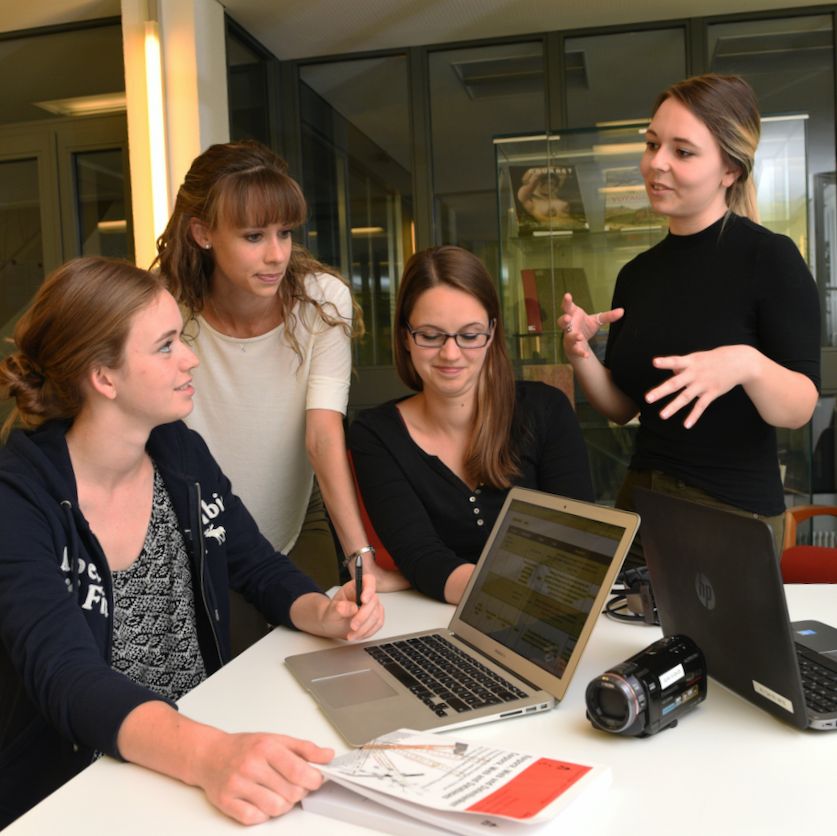
Our languages and our speech are constantly changing. As individuals, we notice this when learning languages, but in every conversation, we adapt and thus constantly change our lexical and grammatical resources (whether consciously or not). At the level of language communities, this is noticeable intergenerationally, in processes of language change, in the formation of contact languages, or in the negotiation of cultural norms and values. This module thus focuses on the processuality of language and communication. The perspective is directed towards interactional, sociolinguistic, psycholinguistic and cultural processes that lead to the formation and change of linguistic patterns and categories.
- How do we learn language(s) as children or adults (language acquisition)?
- How are language and linguistic knowledge represented in the brain (psycholinguistics)?
- How do linguistic patterns emerge and change in conversation (interactional linguistics, cultural linguistics)?
- How do language, gestures, facial expressions and body posture interact in the process of social and linguistic actions (Multimodal Conversation Analysis)?
- What processes underlie linguistic identity construction?
- How does linguistic identity construction change across the lifespan?
- How does one learn textual and conversational competence? How can such competence be measured? And how do digitization processes change that competence?
- What cognitive processes influence the emergence and change of linguistic categories, and what does the concept of linguistic relativity teach us?
- How does linguistic meaning emerge?
- What principles does language change follow, and how can it be made visible in language corpora?
- How (and how closely) are language change and cultural change related?
- What effects do multilingualism, cultural contact and the mixing of languages have on our speech?
- How do communication processes change in digital media?
- How are cultural values and norms established, transmitted and changed by communication?
The knowledge and skills you acquire in this module will allow you to assess and effectively design language-acquisition and language-teaching situations. You will learn to critically interpret communication processes and digital communication media, and you will develop intercultural awareness. All this will give you a foundation not only for linguistic research, but also for work in communication and marketing departments and international companies.
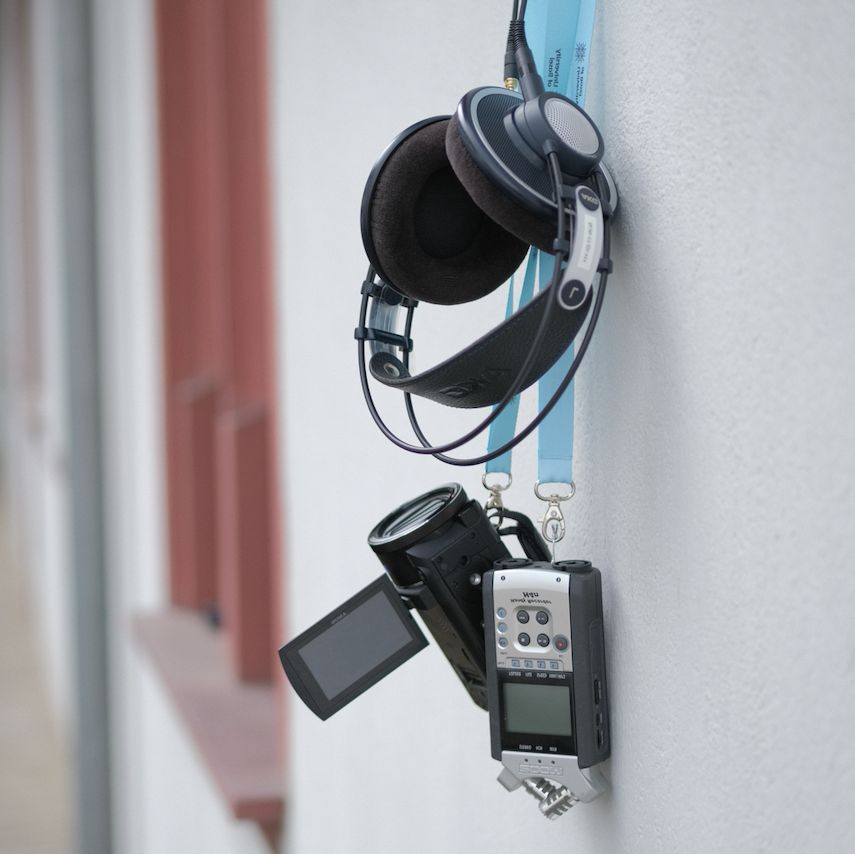
This module offers you the opportunity to exercise and expand your theoretical and methodological knowledge so that you can apply it effectively. Here you are free to further explore your preferred subject areas in additional courses. At the same time, a research internship offering you insight into actual research practice and full participation in a team helps you lay the optimal foundation for the conception and preparation of your master's thesis. At the same time, you can prepare yourself for any subsequent research.
You will learn research work in practice, from conception and method to data evaluation and analysis. The knowledge of research design and implementation you will acquire can also be transferred to project conception, management and teamwork in other professional fields.
For me, the master's was just right. I benefited a lot from the research internship in particular, as I was able to apply the method directly to my master's thesis afterwards.
Mirjam Wilhelm, High-School Teacher
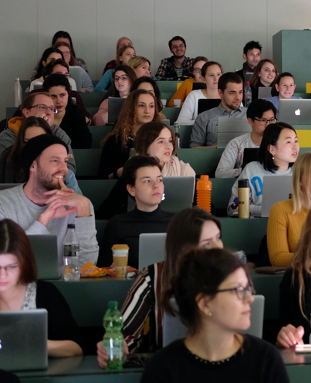
What will you learn in the program and what skills will you develop?
You will learn theories and methods that address all levels of communication:
- Linguistic structures
- Linguistic interaction in (computer-mediated) conversations and written texts.
- Visual signals (emojis or illustrations).
- Gestures, facial expressions and physicality
- Language in social and societal contexts:
- Presenting identity & taking a stand
- Public and media discourses
- Shaping text forms & conveying information via texts
- Tendencies in contemporary language, and implications for communication in the future
- And much more.
You will take functional, pragmatic, interactional and cognitive approaches to these issues.
You will acquire the ability to analyze, explain and discuss linguistic and communicative processes on various levels.
You will be able to:
- present the most important theories, methods and results of linguistic research.
- analyze regional, social, cultural and situational forms of language use
- recognize, distinguish and combine research questions and questions from language practice
- classify and explain the significance of language and communication for everyday life, art and science
- provide information on practical topics such as "school mediation", language practice in public, or standardization of spelling
- deal with your own and "foreign" linguistic cultural products with critical openness.
- understand and develop communication processes
The course of study has definitely opened doors for me. The name 'Language and Communication' is attractive and is relevant in my industry, since I have a lot to do with copywriting, blogging and PR. In addition, the University of Basel has a very good reputation.
Dino Kuckovic, Director of Community & Events at an international social media marketing platform
And where can you go with this degree?
The MA degree in Language and Communication offers ideal conditions for demanding (communication) activities within the multilingual cultural and economic areas of Switzerland and Europe.
The wide range of options in the study program for the free choice of fields of interest allows you to position yourself during your studies for the areas of activity in which you are most interested.
The page "Career Perspectives" provides examples, field reports and tips from our graduates.
Are you interested in the doctoral program? We invite you to take a look at some of the numerous events offered by our doctoral school, including workshops, conferences, methods, courses, and writing meetings. You can find all the information on the page 'Info: PhD and Linguistics Events'.
Attractive prospects
- Combine your MA studies with the teaching diploma (Sek.II, Ph)
- Study across borders in three countries at the European Campus (Eucor)
- Learn to use digital methods (Digital Humanities Lab).
- Learn and work on ongoing research projects
- Prepare for the next step and get a taste of doctoral studies (-> HPSL).

